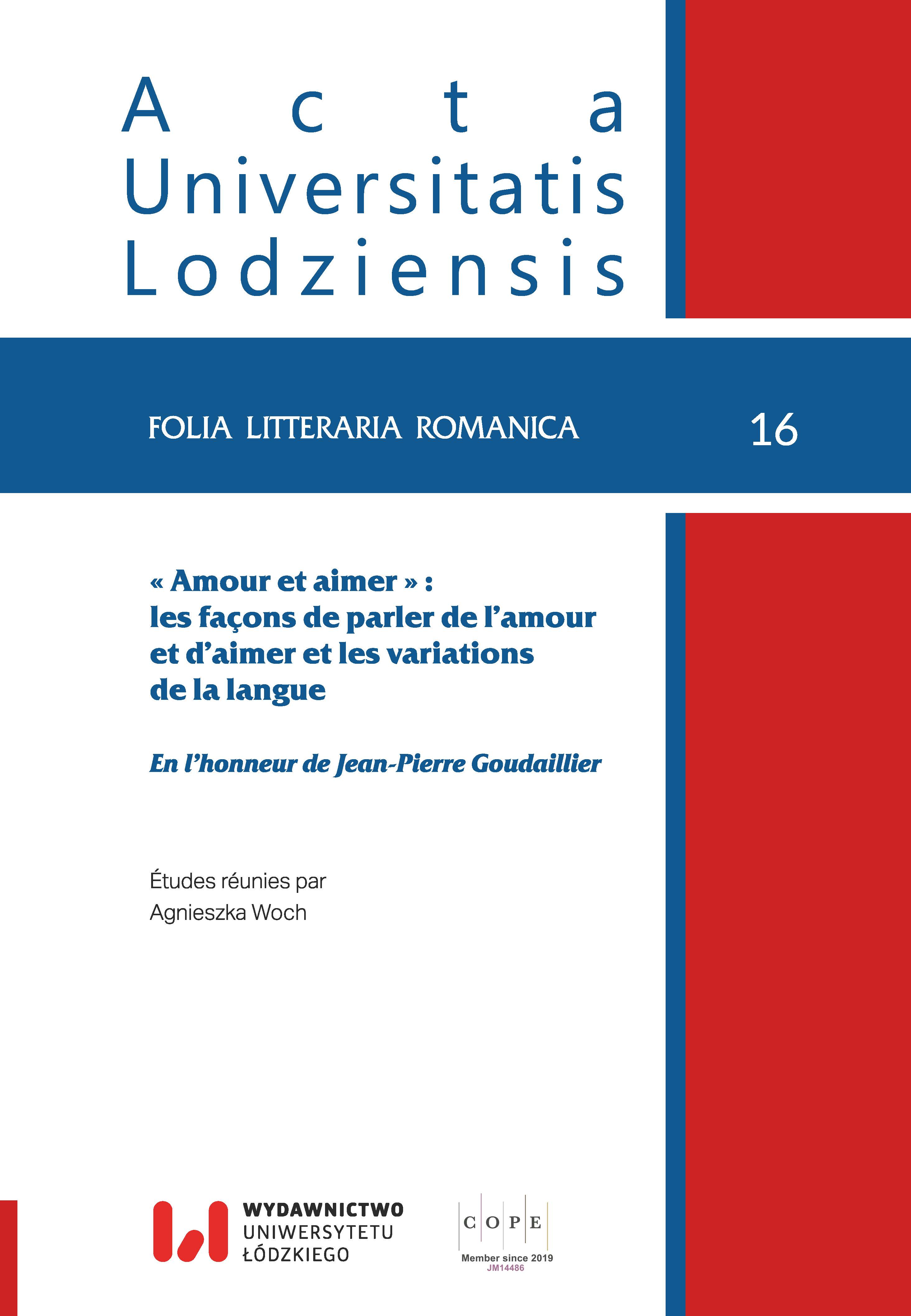Words of Love in Songs by Edith Piaf
DOI:
https://doi.org/10.18778/1505-9065.16.20Keywords:
Édith Piaf, love, to love, song, didactics of the French languageAbstract
All her life, she sought love and sang about it. Édith Giovanna Gassion, known as Édith Piaf, recorded over 300 songs in which love has a special place. Just look at the titles of her songs to understand the meaning of love in the texts interpreted by Piaf: “J’ai dansé avec l’amour”, “C’était une histoire d’amour”, “La vie, l’amour” or “l’Hymne à l’amour”. In our article, we propose to analyze the place and contexts of using the noun love and the verb to love in the lyrics of songs written by Édith Piaf herself and by other authors of the lyrics who worked for her. This diagnostic study will make it possible to identify the entire lexicon linked to the words love and to love, to analyze their importance in Piaf’s work and to make a proposal with a didactic objective. The linguistic analysis will be supplemented with didactic reflection on the possibility of using songs about love from Piaf’s repertoire during French lessons as a foreign language.
Downloads
References
BELLERET, Robert (2013), Piaf, Un mythe français, Paris, Fayard
Google Scholar
BONINI, Emmanuel (2008), Piaf, la vérité, Paris, Pygmalion
Google Scholar
COLIN, Jean-Paul (1992), Dictionnaire de l’argot, Paris, Larousse
Google Scholar
CONSEIL DE L’EUROPE (2001), Cadre européen commun de référence pour les langues, Paris, Didier
Google Scholar
DENIOT, Joëlle-Andrée (2012), Édith Piaf. La voix, le geste, l’icône, Paris, Lelivred’art
Google Scholar
DESGROUPES, Pierre (1960), Piaf rechante, film (Cinq Colonnes à la Une), © INA
Google Scholar
EMER, Michel (1963), À quoi ça sert l’amour, Paris, Beuscher
Google Scholar
LARUE, André (1993), Édith Piaf, L’amour toujours, Paris, Michel Lafont Éditions
Google Scholar
LONJON, Bernard (2015), Édith et ses hommes, Paris, Éditions du Moment
Google Scholar
PIAF, Édith (1964), Ma vie, Paris, Union Générale d’Éditions
Google Scholar
PIAF, Édith (2002), Marcel Cerdan, Moi pour toi. Lettres d’amour, Paris, le cherche midi
Google Scholar
PIAF, Édith (2011), Mon amour bleu, Paris, Éditions Grasset & Fasquelle
Google Scholar
PORCHER, Louis, HUART, Michèle, MARIET, François (1979), Adaptation de « Un niveau-seuil » pour des contextes scolaires, Paris, Hatier
Google Scholar
QUINONERO, Frédéric (2008), Édith Piaf. Le temps d’illuminer…, Paris, Éditions Didier Carpentier
Google Scholar
REINER, Silvain, (1999), Piaf, le livre d’Édith, Paris, l’Archipel
Google Scholar
PIAF, Édith (1945), La vie en rose, © Beuscher
Google Scholar
PIAF, Édith (1949), L’hymne à l’amour, © Raoul Breton
Google Scholar
RIVGAUCHE, Michel (1958), Tant qu’il y aura des jours, © Celine
Google Scholar
RIVGAUCHE, Michel (1960), La vie, l’amour, © Métropolitaines
Google Scholar
RIVGAUCHE, Michel (1961), Les mots d’amour, © S.E.M.I
Google Scholar
Downloads
Published
How to Cite
Issue
Section
License

This work is licensed under a Creative Commons Attribution-NonCommercial-NoDerivatives 4.0 International License.













